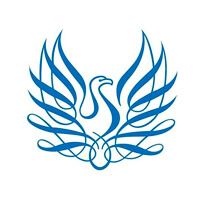fees waived
Interior Architecture and Design, BA (Hons)
Coventry University, United Kingdom
Ranking in UK
Architecture
Architecture
Architecture
Costs
food & rent S$17.1K / year
Entry requirements
Scholarships
Unlimited quantity
Unlimited quantity
Unlimited quantity
Limited quantity
Information
Code
Intakes
Website (External)
Programmes
Information
Duration
2029
This course in interior architecture equips students with essential skills from conceptualization and 2D visualization to 3D modelling and animation, fostering innovative design that balances creativity with practical application. Ranked 10th for Interior Design by the Guardian University Guide 2024, it emphasizes conceptual thinking, digital fluency, material sensitivity, and employability across sectors like retail, hospitality, and civic design. Students develop portfolios through studio-based learning, blending traditional techniques with emerging technologies such as CAD and 3D printing, while gaining global perspectives through international partnerships and a strong alumni network.Key benefits include a focus on sustainability, professional accreditation from the Society of British & International Interior Designers (SBID), and opportunities for work placements. The curriculum progresses from foundational modules in drawing, digital skills, and space design in year one, to advanced technical and professional development in year two, culminating in a final major project. Assessment involves industry-relevant methods like reports, coursework, and presentations, ensuring graduates are prepared for careers in interior architecture and related fields.
In the first year, the curriculum allows you to gain a broad grounding in the discipline where you will develop knowledge and skills to do with creating spaces, digital skills and tools, and materials, among others. *Modules* Drawing and Making Spaces Creative Exploration The Language of Space Digital Skills 1 Materials and Structures Designing Spaces *Year Two* In year two, you will continue to develop the skills and knowledge you’ve learnt. We do this by embedding the following four principles into the curriculum and developing your: Technical skills – digital fluency, backed with the right academic knowledge Study skills – to be an adaptive, independent and proactive learner Professional skills – to have the behaviour and abilities to succeed in your career Global awareness – the beliefs and abilities to be a resilient, confident and motivated global citizen *Modules* Branded Spaces Digital Skills 2 Professional Development Research and Analysis Creative Consolidation Collaborative Design *Placement Year* There’s no better way to find out what you love doing than trying it out for yourself, which is why a work placement* can often be beneficial. Work placements usually occur between your second and final year of study. They’re a great way to help you explore your potential career path and gain valuable work experience, whilst developing transferable skills for the future. If you choose to do a work placement year, you will pay a reduced tuition fee* of £1,250. For more information, please go to the fees and funding section. During this time, you will receive guidance from your employer or partner institution, along with your assigned academic mentor who will ensure you have the support you need to complete your placement. *Final Year* Your final year aims to bring you to the level to enter the world of work by consolidating your knowledge and skills from year one and two. You could also work on a large final project in an area of your interest, with the support of your tutors. *Modules* Final Major Project: Definition and Direction Final Major Project: Investigation Final Major Project: Conceptual Synthesis Final Major Project: Development Final Major Project: Resolution We regularly review our course content, to make it relevant and current for the benefit of our students. For these reasons, course modules may be updated. Before accepting any offers, please check the website for the most up to date course content. For full module and all course detail please check the course page on the Coventry University website.
A local representative of Coventry University in Singapore is available online to assist you with enquiries about this course.

